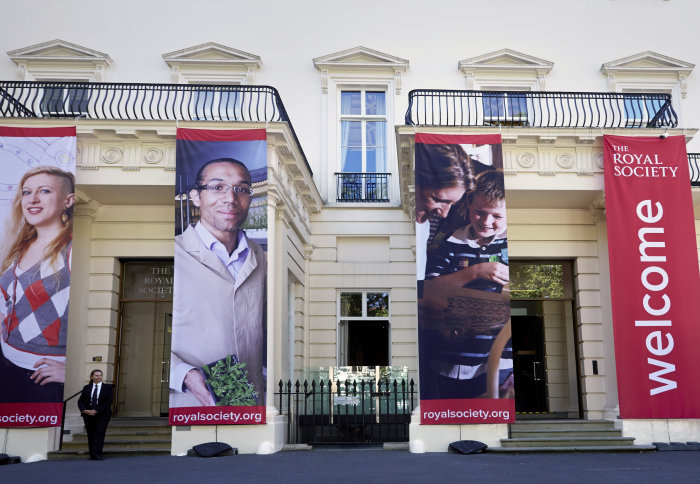Royal Society medals go to three Imperial academics

The awards recognise work in controlling individual atoms, tackling sexual harassment issues in higher education and designing solar energy devices.
The annual prizes by the Royal Society recognise exceptional researchers who make outstanding contributions to science.
As well as three current academics, Imperial’s new Provost Professor Ian Walmsley – who takes up his role in September – was awarded the Rumford Medal for ‘pioneering work in the quantum control of light and matter on ultrashort timescales, especially the invention and application of new techniques for characterization of quantum and classical light fields’.
Professor Edward Hinds - Bakerian Medal and Lecture
 Professor Hinds, from the Department of Physics, receives his award for ‘his achievements in controlling individual atoms, molecules and photons. With these, he has advanced our understanding of fundamental phenomena such as Casimir forces, dark energy, and supersymmetry’.
Professor Hinds, from the Department of Physics, receives his award for ‘his achievements in controlling individual atoms, molecules and photons. With these, he has advanced our understanding of fundamental phenomena such as Casimir forces, dark energy, and supersymmetry’.
He is the Chair in Physics at the Centre for Cold Matter at Imperial, which cools atoms to help researchers manipulate and control them. With these atoms, Professor Hinds and his colleagues are studying topics such as quantum logic, ultracold molecules and time reversal symmetry.
On his award, Professor Hinds said: “The Bakerian is one of the premier medals of the Royal Society that recognises exceptional and outstanding science, so it is a huge honour that my colleagues have seen fit to award this to me. I am particularly excited by the opportunity to give one of the Bakerian lectures, in a series that goes back to 1775.”
Dr Emma Chapman - Royal Society Athena Prize
Dr Chapman, from the Department of Physics, receives her award for ‘driving nationally impactful policy changes concerning sexual harassment issues in higher education’.
 On her award, Dr Chapman said: “It takes time and commitment to pursue reform in topics that people don’t like to talk about, such as sexual harassment. Usually seeing reform happen is the only reward, which can be more than enough.
On her award, Dr Chapman said: “It takes time and commitment to pursue reform in topics that people don’t like to talk about, such as sexual harassment. Usually seeing reform happen is the only reward, which can be more than enough.
“To receive this award though feels like a real recognition, a genuine honour, and I dedicate it to all the other campaigners within universities, the Institute of Physics and especially The 1752 Group, who drive harassment reform and help make academia a place where everyone can flourish and be safe.
“The ongoing work in sexual misconduct reform is largely carried out on a voluntary basis, by academics who cannot look away once they have seen an injustice. I hope that more universities not only officially acknowledge and recognise their efforts, but place their own financial and institutional commitments into solving a problem which affects us all.
“I am proud to be a member of Imperial College London which has not only supported me without qualification in my diversity work but has itself recently made concrete steps towards leading reform in university sexual harassment policy.”
Professor James Durrant - Hughes Medal
 Professor Durrant, from the Department of Chemistry, receives his award for ‘his distinguished photochemical studies for the design solar energy devices, particular by transient spectroscopic studies of dye sensitized solar cells and of photoelectrochemical water splitting’.
Professor Durrant, from the Department of Chemistry, receives his award for ‘his distinguished photochemical studies for the design solar energy devices, particular by transient spectroscopic studies of dye sensitized solar cells and of photoelectrochemical water splitting’.
His research addresses the development of new chemical approaches to converting sunlight into energy. This takes the form of both solar cells for electricity production (such as solar panels) and solar energy for creating fuels (so-called ‘artificial photosynthesis’).
Professor Durrant said: "I am particularly delighted to receive the Hughes Medal from the Royal Society for research in energy. Moving towards more sustainable energy technologies is a key challenge for addressing man-made climate change, and I am delighted that the work of my colleagues and me on new materials for solar energy conversion has been recognised in this way."
Article supporters
Article text (excluding photos or graphics) © Imperial College London.
Photos and graphics subject to third party copyright used with permission or © Imperial College London.
Reporter
Hayley Dunning
Communications Division